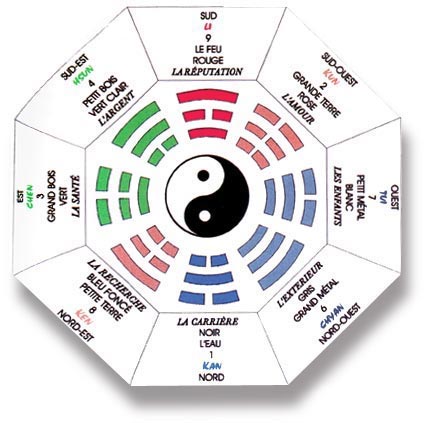Feng shui is an association of Chinese words meaning wind and water respectively. It could be translated into French by the divination of the earth. The purpose of feng shui is to control your chi which is cosmic energy. Control is exercised, in the physical body of man, but also in his daily living space. The purpose of this mastery is the establishment of a harmonious relationship between man, earth and sky. You lack such a balance if your cosmic energy is not released. The consequences will be perpetual tensions in your social and professional environment.
Origin
The Chinese have been credited with the practice of feng shui for almost 3000 years. Its advent is in ancient times. The first forms of use of this mancie were a combination of occult divinatory practices consisting of ancestor cults, various rituals and magic. The idea at the time was the certainty for the Chinese that they enjoyed the protection of their ancestors and therefore, in return, they had to offer them a funeral with tombs directed towards the chi. Thus the graves of these peoples face the South, the cardinal point that is the source of the breath of life.
It must be understood that the Chinese have always had a deep regard for the two elements of nature that are paths of circulation of the energies of the cosmos. Today, feng shui allows us to determine the favourable seasons, the good days, the best locations for the construction of buildings.
Uses and interpretation
The practice of feng shui can be done in two ways corresponding to two current trends among insiders. The first technique is the use of a compass. It is a feng shui that is far from simple. It considers eight cardinal points from which energy currents must be exploited. Then the compass positioned in the south direction allows to know the best orientation according to need and demand.
The second trend is called relief. She uses intuition. Here, the determination of the best direction is made by using the environment and the geographical elements namely climates, relief close to the building whose desired location is to be determined, the best orientation.
Other techniques for the practice of feng shui can be counted: the technique of nine ki and eight doors, that of the two mountains or black hats and the technique of physical forms. He also uses elements of Chinese astrological art such as the combination of yin and yang as well as the five elements of nature: water, earth, fire, air, metal.
Feng shui is mainly used in construction and landscaping. It requires a lot of attention from the feng shui practitioner. From outside the house, the building exerts its sense of observation on the elements near the construction site. Whether it's trees, roads, houses. This observation allows him to know the quality of the energy in attendance.
Once inside the building, he makes the construction plan to be able to locate the vital places favorable to affectivity, family life, health, professional activity and well-being in general. The interpretation of feng shui is related to the quantity and quality of chi. The more positive the chi, the more well-being you have and live in harmony. Using the data collected, the practitioner Fenghui corrects the existence of negative influences, realizing the harmony of the place. His work ends with tips that will allow you to preserve the cosmic energy of the building.








